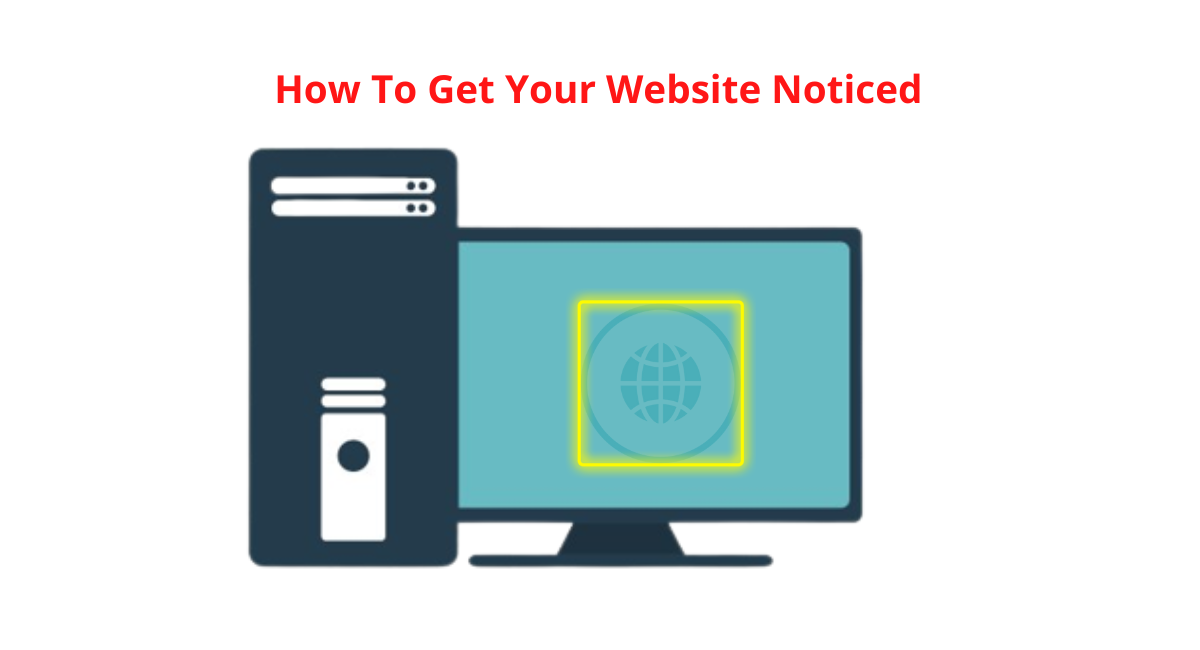Have you ever been overly enthusiastic about the debut of a new website or the publication of a new blog article, only to discover that no one reads either?
I have. Everyone who has published anything online in the last several years, particularly those who run small businesses, has unquestionably gone through that experience at some point.
The sheer amount of material available online makes it difficult.
As of 2014, there were one billion websites, a number that was compiled many years ago.
You will need to be purposeful in your approach to encourage people to notice your website in this atmosphere.
It is not enough to write anything and have the expectation that someone will read it; as the adage goes, hope is not a strategy.
If you want search engines to take notice of your website, this is the step that you need to take, according to Google, which informs you that this is what you need to do.
Keeping this in mind, the procedure that you need to carry out in order to make people aware of your website is as follows:
Make certain that the technical aspects of your website are as optimized as possible.
Always use the recommended procedures for content marketing.
Ensure that you are using the finest SEO tactics (content, optimization, links).
Although there is a lot of material presented here, we will go over everything in order.
How to Increase the Visibility of Your Website in Google’s Search Results?
When it comes to getting people to notice your website, Google is by far the most important factor to consider, as you may or may not be aware.
Here is a guide that will show you how to boost your website’s visibility in Google’s highly important search rankings.
1. Optimize Your Website for Certain Keywords

Google doesn’t merely focus on recognizing high-quality websites.
It can also recognize relevant online pages that are the most appropriate for particular queries.
One thing to do is write advertisements that are related to your keywords and have good quality scores.
But you also need to think about the on-page search engine optimization.
Make sure that each page of your website is directed specifically at a certain subject area.
This requires you to undertake in-depth keyword research to discover high-volume, relevant phrases and then incorporate those keywords on your page and in your meta tags.
Each page has a better chance of getting discovered and appearing on the first page of Google if the topic being discussed is as narrowly focused and particular as possible.
2. Make It Simple for Google to Index Your Sites Using Its Crawlers
Google is always scanning the web in order to add newly discovered sites to its index and to update the profile information for previously discovered pages.
If you make it simpler for Google to crawl through your website and learn what it needs to learn, it will be able to add you to its index and retrieve your site more rapidly when users perform searches.
This indicates that:
- Including keywords pertinent to the subject you want to rank for in the meta title, URL, meta description, and image tags of each of your web pages (a core component of image SEO).
- Creating links inside your website’s pages to make it simpler for search engine crawlers to navigate the site as a whole (and more authoritative).
- Conducting a technical search engine optimization audit of your website to check for any indexation gaps.
Is your website tailored to maximize its visibility on Google? Discover in a flash with the LOCALiQ website grader, which is completely free.
3. Create More Web Pages for Your Website

Have you begun maintaining a blog yet? A blog is, without a doubt, the most effective technique for boosting your website’s organic reach.
Every time you publish a new blog article, you can rank higher in Google’s search results for a wider variety of keywords.
Nevertheless, it would be best if you avoided the common pitfall of beginning a blog only for the purpose of increasing your page count.
Blog entries that offer valuable information or recommendations have a higher ranking on Google, which in turn drives more traffic to those posts.
People who are looking for information on Google are likely to notice your website more often if it is a trustworthy resource that boosts the value you offer.
If this is the case, your blog will most likely help your website become discovered.
4. Get Certified By Google
When Google “crawls” the web, it finds your website’s pages based on how simple they are to read and organize.
Do you want Google to be able to crawl your pages in an even more effective manner?
Utilizing Google My Business, submit your company to be seen on Google Maps.
This is the procedure to follow:
- Make sure your company has a Google My Business account.
- You may locate your company using Google Maps.
- You should claim your company on Google Maps.
It’s as simple as that.
The final step involves checking your mail for a physical verification number and then putting that code into your Google My Business page when it arrives.
When you have Google verify your business and permit you to enhance your Google My Business listing, your business will be considered “claimed” by Google.
To put it another way, the more detailed your company listing is, the more impressions and clicks (also known as “being noticed”) your website and business will begin to receive on Google.
5. Write Great Content

Writing about keywords and correctly positioning those keywords on your sites will help Google see you, but if you want more people to notice you, you’ll need to rank higher.
Writing about keywords and properly arranging those keywords on your pages will help Google notice you.
High-quality content is the key to achieving a higher position on Google.
There is no easy way around this.
Google monitors the length of time users spend on your website as well as whether or not they navigate to other sites before leaving.
If you want to produce a fantastic blog article that captures people’s attention, be sure to:
- Explore the topics in-depth and provide answers to the queries that are asked the most in relation to your keywords.
- Using photos, movies, and other forms of media can hold people’s attention and enhance dwell time.
- Your website should strive to give users an experience (not just answers)
- Keep an eye on load times and adjust accordingly for mobile.
- Acquire backlinks from other reliable sites that may be found on Google.
- If you are more concerned with the quality of your business rather than its rating, Google will reward you with a better ranking, and more people will take note of your company.
Quick Links:
- Tips to Keep You Motivated When Starting Your Blog or Website
- How To Set SMART Goals to Grow Your Business?
- Best Ways To Automate Your Marketing Operations
Conclusion: How To Get Your Website Noticed In 2024?
To begin with, consider how the material you create fits into your company’s larger aims.
You will be better off in the long run if you put some planning effort into it at the beginning of the process.
You can accomplish this by putting out a marketing plan.
A typical marketing strategy is not necessary, but developing a strategic marketing plan for search engine optimization (SEO) will be of assistance.
You will choose your niche as part of establishing your marketing plan.
Keep in mind that there are more than one billion websites and that there is a lot of competition.
However, you should not let this deter you; rather, you should concentrate on the areas in which you can make the most impact and stand out the most.
In a related vein, you should be very clear about the audience that you are writing for. You cannot be everything to everyone.
Keep in mind that you only have around three seconds to grab someone’s attention online. If your site’s material and messaging do not speak to them quickly, they will click the back button and abandon your site.
In order to capture the reader’s interest in a short amount of time, you need to make certain that the information you provide is pertinent to them.
To do this, you need to think about the kind of customer you want to work with the most. What is it that they are going to be interested in learning from you?
After you have a better understanding of the audience for which you are writing, the next step is to select what, specifically, you will be writing about.
This could seem difficult to figure out. However, there is actually a fairly simple solution to this problem:
I often suggest to clients that the greatest place to start looking for content is in the questions and comments that they have previously responded to.
What types of inquiries do you often receive from customers? Is there anything to which you discover that you provide the same response over and over again?
These are excellent starting points for enhancing your material. (If you are beginning to start, consider the inquiries that others may have for you.)

